Claimed For All, But Bypassed By Some
Now that we have understood the doctrine and analyzed whether it is coherent with Scripture, we will explore another aspect of investigative judgment. If you haven’t read Part 1, ensure you do so before diving into the people we will discuss in this article who got a ‘Get Out Of Jail Free Card’ from Ellen G. White and bypassed the required Investigative Judgment altogether.
Biblical Examples
Ellen White claimed that “all” must pass through the Investigative Judgment to determine their salvation. However, the Bible indicates that many individuals’ cases were decided long before this Investigative Judgment:
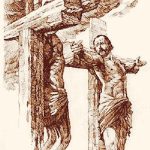 The Thief on the Cross: Jesus assured the thief on the cross, “Today shalt thou be with me in paradise,” more than 1800 years before the Investigative Judgment supposedly began (Luke 23:43). The thief’s case was resolved in 33 A.D. when he repented and believed in Jesus. This shows that Christ doesn’t need an Investigative Judgment to decide who enters His kingdom.
The Thief on the Cross: Jesus assured the thief on the cross, “Today shalt thou be with me in paradise,” more than 1800 years before the Investigative Judgment supposedly began (Luke 23:43). The thief’s case was resolved in 33 A.D. when he repented and believed in Jesus. This shows that Christ doesn’t need an Investigative Judgment to decide who enters His kingdom.
Why would other believers be treated differently than the thief on the cross?
Abraham, Isaac, and Jacob: The Bible says Abraham was justified by faith (Rom. 4:2-5). Almost 1800 years before the Investigative Judgment, Jesus declared: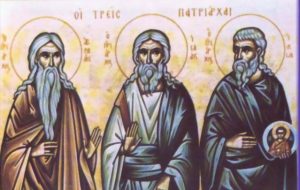
“And I say unto you, that many shall come from the east and west, and shall sit down with Abraham, and Isaac, and Jacob, in the kingdom of heaven” (Matt. 8:11).
Clearly, no investigation was necessary for Abraham, Isaac, and Jacob.
Who else in the Bible didn’t require an investigative review?
 Moses: The Bible states that Moses sinned, died, and is now in heaven (Jude 9). How could Moses enter heaven if sins aren’t blotted out until after the Investigative Judgment? Since the Bible says no sinner can enter heaven (Rev. 21:27), Moses’ sins must have been forgiven before 1844!
Moses: The Bible states that Moses sinned, died, and is now in heaven (Jude 9). How could Moses enter heaven if sins aren’t blotted out until after the Investigative Judgment? Since the Bible says no sinner can enter heaven (Rev. 21:27), Moses’ sins must have been forgiven before 1844!
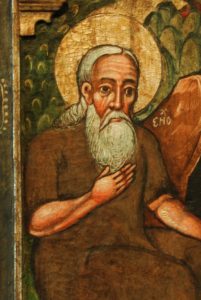 Enoch: Enoch was taken to heaven without dying long before the Investigative Judgment (Heb. 11:5). Ellen White claimed to have seen Enoch on another unfallen world:
Enoch: Enoch was taken to heaven without dying long before the Investigative Judgment (Heb. 11:5). Ellen White claimed to have seen Enoch on another unfallen world:
“There I saw good old Enoch, who had been translated.” [1]
She asked Enoch if this was his home, and he supposedly replied,
“It is not; but the city is my home, and I have come to visit this place.”[2]
How could Enoch be in heaven before the Investigative Judgment?
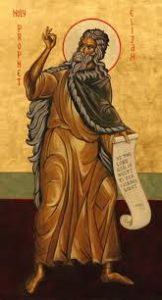
Elijah: There’s no mention of an Investigative Judgment in Ellen White’s account of Elijah being taken directly to heaven:
“There was yet a great work for Elijah to do; and when his work was done, he was not to perish in discouragement and solitude in the wilderness. Not for him the descent into the dust of death, but the ascent in glory, with the convoy of celestial chariots, to the throne on high.”[3]
Those Resurrected When Christ Arose: The Bible says that “many” saints were resurrected when Christ rose (Matt. 27:52-53). Ellen White explains what she believes happened to them:
“…those who came forth from the grave at Christ’s resurrection were raised to everlasting life. They ascended with Him as trophies of His victory over death and the grave. These, said Christ, are no longer the captives of Satan; I have redeemed them. I have brought them from the grave as the first fruits of My power, to be with Me where I am, nevermore to see death or experience sorrow.”[4]
How did these “many” saints bypass the Investigative Judgment?
Non-biblical Examples
 The Case of William Miller
The Case of William Miller
Ellen White emphatically stated that no one could be saved if they rejected the light of the Sabbath:
“If they have light upon the Sabbath, they cannot be saved in rejecting that light. But none will be held accountable for light which they have never received.” [5]
After the light shone upon the Sabbath, those who received it and then cast it away would have no hope.
James White noted that William Miller, although familiar with the Sabbath message, eventually rejected it:
“It is proper here to state that Mr. Miller did not view the second message as we do. Neither did he change his views upon the immortality and Sabbath questions.” [6]
Despite his rejection of the “Sabbath light,” Ellen White suggested that Miller would be saved:
“God suffered him to fall under the power of Satan, the dominion of death, and hid him in the grave from those who were constantly drawing him from the truth. Moses erred as he was about to enter the Promised Land. So also, I saw that William Miller erred as he was soon to enter the heavenly Canaan, in suffering his influence to go against the truth. Others led him to this; others must account for it. But angels watch the precious dust of this servant of God, and he will come forth at the sound of the last trump.” [7]
The case of William Miller raises important questions. How could a man who rejected the Sabbath truth—something Ellen White said was essential for salvation—still be seen as saved in a vision? Furthermore, how could she declare Miller righteous before his case was even reviewed in the Investigative Judgment?
The Case of Mrs. Hastings
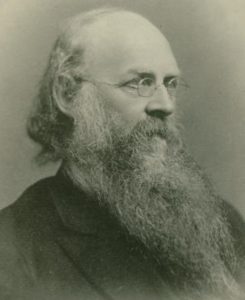
H.L. Hastings, Husband of Mrs. Hastings
In 1850, Ellen White wrote:
I saw that she [Mrs. Hastings] was sealed and would come up at the voice of God and stand upon the earth, and would be with the 144,000. I saw we need not mourn for her; she would rest in the time of trouble, and all that we could mourn for was our loss in being deprived of her company. I saw her death would result in good.[8]
Here, again, is a case decided before the Investigative Judgment. How could William Miller and Mrs. Hastings be declared righteous before their cases even came up in the Investigative Judgment?
Brothers Fitch and Stockman, and Others
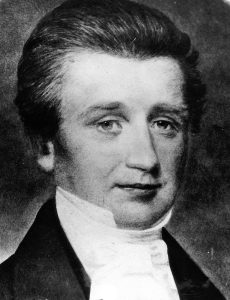
Charles Fitch
In 1845, Ellen Harmon claimed to have had a vision where she was in heaven with the redeemed. After being shown the Tree of Life, Ellen met some brethren who had passed away prior to 1845:
“We all went under the tree, and sat down to look at the glory of the place, when Brethren Fitch and Stockman, who had preached the gospel of the kingdom, and whom God had laid in the grave to save them, came up to us, and asked us what we had passed through while they were sleeping. We tried to call up our greatest trials, but they looked so small compared with the far more exceeding and eternal weight of glory that surrounded us, that we could not speak them out, and we all cried out, “Alleluia! Heaven is cheap enough,” and we touched our golden harps and made heaven’s arches ring.” [9]
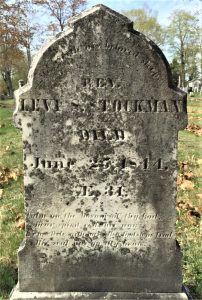
Grave of Stockman, Died in 1844
God must have already decided the cases of these two recently deceased believers by December 20, 1845, or He would not have shown Ellen Harmon a vision with them in heaven. In the same vision, she also saw a number of biblical heroes in heaven:
“I asked Jesus to let me see what was within there. In a moment we were winging our way upward and entering in. Here we saw good old father Abraham, Isaac, and Jacob, Noah, Daniel, and many like them.” [10]
Therefore, in addition to the cases of Abraham, Isaac, and Jacob—whom the Bible tells us are righteous—Ellen White added Noah, Daniel, and “many” others. All these cases must have been decided within fourteen months of the inception of the Investigative Judgment.
Cases of the Wicked Already Decided?
Apparently, the case of Thomas Paine (1737-1809) was already decided by 1854 when Ellen White published the following statement:
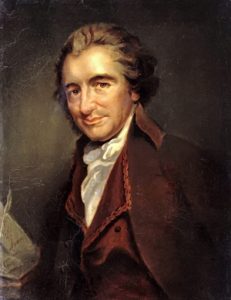
Thomas Paine
“Thomas Paine, whose body has now moldered to dust and who is to be called forth at the end of the one thousand years, at the second resurrection, to receive his reward and suffer the second death, is represented by Satan as being in heaven, and highly exalted there.”[11]

Napoleon Bonaparte
In 1858, Ellen White announced that Napoleon (1769-1821) would be among the resurrected wicked who would lead an attack upon the righteous at the end of the Millennium:
“And there were mighty giants and valiant men who had never lost a battle. There was the proud, ambitious Napoleon, whose approach had caused kingdoms to tremble.” [12]
How Slow is God?
Ellen White taught that the judgment began with Adam on October 22, 1844, and would progress through every generation of the dead. Then, after all the dead are judged, the living would be reviewed:
“In 1844 our great High Priest entered the most holy place of the heavenly Sanctuary, to begin the work of the investigative Judgment. The cases of the righteous dead have been passing in review before God. When that work shall be completed, judgment is to be pronounced upon the living.” [13]
By 1850, the Investigative Judgment was said to be nearly complete. On July 29, 1850, Ellen White claimed that an angel told her:
“Said the angel, “Jesus has nearly finished His work in the sanctuary. It is no time to be stupid now. A quick work will the Lord do upon the earth. The four angels will soon let go the four winds.”” [14]
If Jesus was nearly finished in 1850, what has He been doing for the last 179 years?
Let’s consider the timeline.
On December 20, 1845, just 14 months after the Investigative Judgment began, Ellen White claimed to have seen Brothers Fitch and Stockman in heaven. Levi Stockman died on June 25, 1844, and Charles Fitch died on October 14, 1844. By the end of 1845, the Investigative Judgment had supposedly reviewed everyone who had died up to October 1844.
Assuming roughly 4,000 years of history passed before Christ’s birth, then by 1845, 14 months after the Investigative Judgment began, 5,844 years of human history had been judged. The rate of judgment was over 5,000 years of history per year of Investigative Judgment. Then, a dramatic slowdown occurred. The next case Ellen White mentioned was that of Sister Hastings, who died around 1850. From 1845 to 1850, God only managed to review about six years of history. Since 1850, the Investigative Judgment has continued for roughly 179 years, averaging about one year of history for every year of judgment. If this trend continues, the Investigative Judgment may never end.
What the Bible Teaches
The Pre-Advent Judgment
While the Bible does not describe an Investigative Judgment as Ellen White taught, it does mention a pre-advent judgment. The first angel in Revelation 14 declares that the time for God’s judgment has come (Rev. 14:6). In heaven, a court is seated, and the books are opened (Dan. 7:10), and judgment occurs. The Bible specifies the purpose of this judgment:
“But the judgment shall sit, and they shall take away his [little horn power] dominion, to consume and to destroy it unto the end” (Dan. 7:26).
This judgment is not an investigation but a sentencing of the wicked. Its purpose is to sentence the wicked who have provoked God’s wrath. God judges (punishes) them by stripping them of their dominion and giving it to the saints (Dan. 7:27). The punishment is also emphasized in the third angel’s message:
“The same shall drink of the wine of the wrath of God, which is poured out without mixture into the cup of his indignation; and he shall be tormented with fire and brimstone in the presence of the holy angels, and in the presence of the Lamb” (Rev. 14:10).
Nothing in Daniel 7 or Revelation 14 describes an Investigative Judgment of the righteous. The only judgment mentioned is the execution of God’s judgment (punishment) upon the wicked. The purpose of the pre-advent judgment is to sentence the wicked to destruction. Then, the judgment is carried out: Their kingdom is taken away, and they are tormented with fire and brimstone until they are destroyed.
The Truth of the Gospel
If you believe in Jesus Christ as your substitute, He was judged on your behalf at the cross. He paid the price for all sin for all time. His righteousness has been credited to you. The good news of the judgment is that all who trust in Christ’s life, death, and resurrection can confidently say, “I’ve been acquitted!” We have already been judged in Christ. “There is therefore now no condemnation to them which are in Christ Jesus” (Romans 8:1). Those who reject the gospel judge themselves unworthy of eternal life. Those who accept the gospel have passed from death to life and will not face the condemnation of judgment (John 5:24).
This walk through the Investigative Judgement Doctrine through the lens of Ellen G. White shows how Ellen contradicts Scripture. Because she claimed that,
“Scripture and Spirit of Prophecy Have Same Author—The Holy Ghost is the author of the Scriptures and of the Spirit of Prophecy.” [15]
…and the Seventh-day Adventist Church’s position that her writings are,
“Divinely inspired, truly Christ-centered, and Bible-based. Rather than replacing the Bible, they uplift the normative character of Scripture and correct inaccurate interpretations of it derived from tradition, human reason, personal experience, and modern culture.” [16]
I can safely conclude that Ellen G. White was a liar and bore false witness to the truth of Scripture and God.
In the next article, we will explore whether Ellen G. White claimed to know when Jesus was coming.
In Christian Love,

[1] Ellen Gould White, To Those Who Are Receiving the Seal of the Living God, n.d., 9.
[2] Ellen Gould White, To Those Who Are Receiving the Seal of the Living God, n.d., 9.
[3] Ellen Gould White, The Desire of Ages, vol. 3, Conflict of the Ages Series (Pacific Press Publishing Association, 1898), 301.
[4] Ellen Gould White, The Desire of Ages, vol. 3, Conflict of the Ages Series (Pacific Press Publishing Association, 1898), 786.
[5] Ellen Gould White, Historical Sketches of the Foreign Missions of the Seventh-Day Adventists (Basle: Imprimerie Polyglotte, 1886), 234.
[6] White, Sketches of the Christian Life and Public Labors of William Miller.
[7] Ellen Gould White, Early Writings of Ellen G. White (Review and Herald Publishing Association, 1882), 258.
[8] Ellen Gould White, Selected Messages From the Writings of Ellen G. White, Book 2 (Review and Herald Publishing Association, 1958), 263.
[9] Testimonies for the Church, vol. 1 (Pacific Press Publishing Association, 1855), 61.
[10] Ellen Gould White, The Day-Star, n.d., 9.
[11] Ellen Gould White, Early Writings of Ellen G. White (Review and Herald Publishing Association, 1882), 89.
[12] Ellen Gould White, The Story of Redemption (Review and Herald Publishing Association, 1947), 419.
[13] The Review and Herald, n.d., 1040.
[14] Manuscript Releases [Nos. 1301–1359, 1987–1988], vol. 18 (Ellen G. White Estate, 1993), 11.
[15] Ellen Gould White, Selected Messages From the Writings of Ellen G. White, Book 3 (Review and Herald Publishing Association, 1980), 30.
[16] Conference of SDA, “Statement of Confidence in the Writings of Ellen G White – Adventist.Org.”

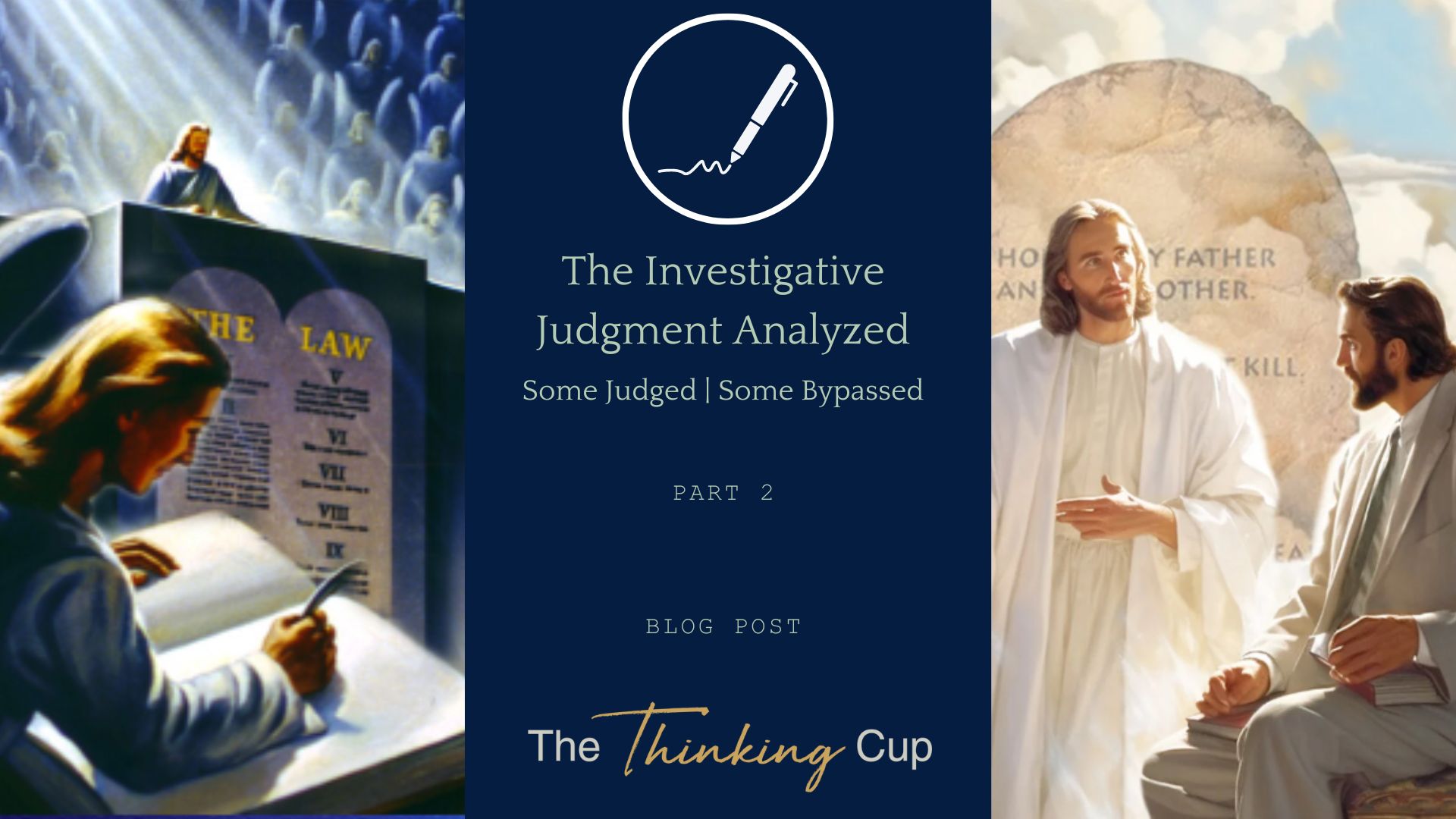
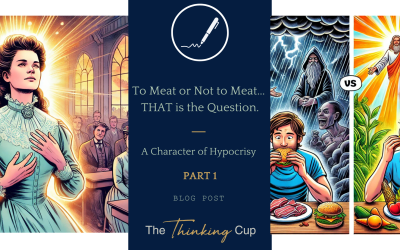

I was challenged that “Today shalt thou be with me in paradise,” should be “I say to you today, thou shalt be with me in paradise” The comma isn’t inspired. The problem with that line of thinking is when you look at the rest of the times Jesus said ‘Truly”
No where else does Jesus say “Truly I say to you today,”
He does say
Matt 19:28 Jesus said to them, “Truly, I say to you, in the new world, when the Son of Man will sit on his glorious throne,
Should we follow the SDA teaching here? “Truly, I say to you in the new world,” so Jesus isn’t going to say anything until we are with Him in the new world.
Matt 26:34 Jesus said to him, “Truly, I tell you, this very night, before the rooster crows,
should that be “truly, I tell you this very night, before the rooster crows”. It makes a difference in the reading.
The comma is before Today because it is grammatically correct. To read one verse differently by ignoring how the rest of scripture is written and distorting it to fit a doctrine is bad Bible reading,.